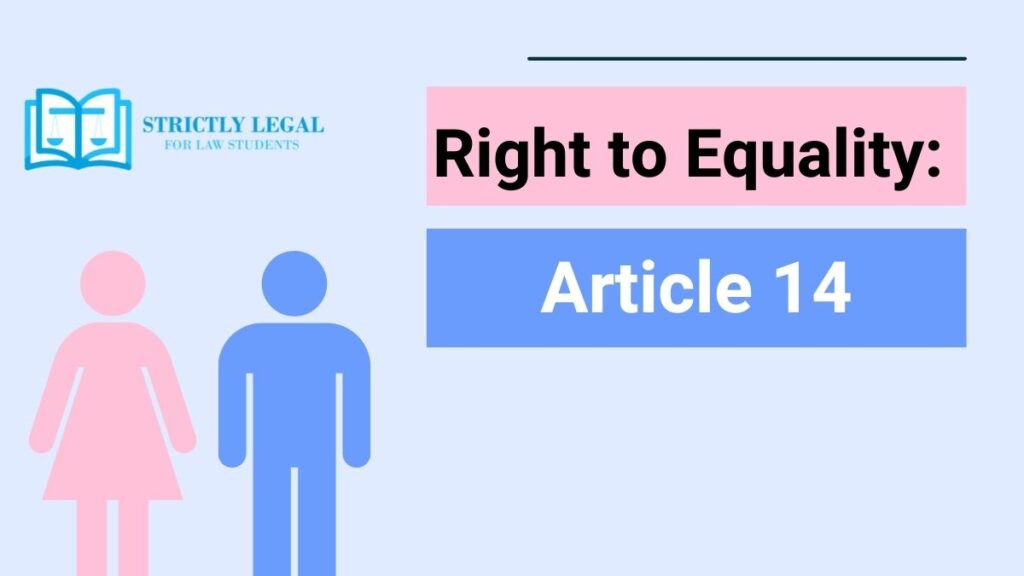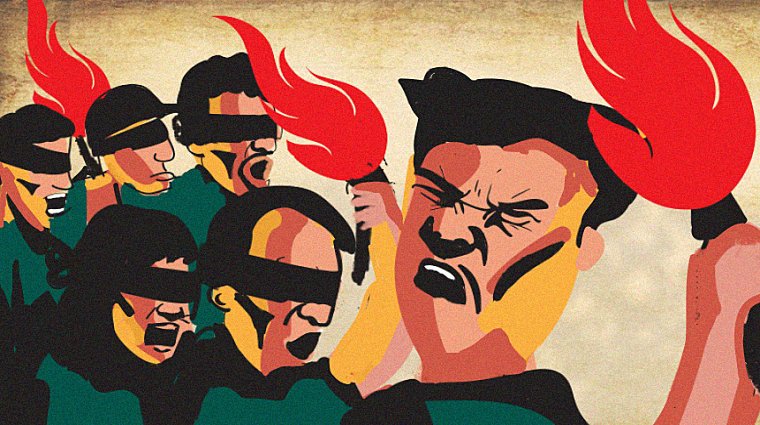Right to Equality calls for providing everyone with equal treatment of law preventing discrimination on various grounds, treating everybody as equal matters in public employment and abolishing untouchability. Right to Equality is on the tip of the tongue of almost every law student since this is the basic fundamental right everyone is aware of. It is very pathetic to say but even after decades of independence, some people in our country still have to be the victim of untouchability and discrimination on grounds of caste, sex, religion, sex, creed. Keeping in mind the scenario of our country, the Constitution Makers inserted article 14 to the Constitution of India as one of the fundamental rights. To treat every citizen equally is the purpose of Article 14 which is also the basic concept of liberalism.
Table of Contents
Equality before law
India is the largest democratic country in the world known for its secular, democratic, republic. Everyone here is allowed to think and do anything with certain reasonable restrictions which are applied by the State. In a nutshell, the concept of equality before the law says that every individual whether rich or poor, male or female, upper caste or lower caste shall be treated equally before the eyes of the law. The state cannot provide a special status to any individual in the country which is also known as legal equality.
On one hand, Equality before law refrains from the provision of any special privilege to a particular individual or community in a society. It does not mention about equal treatment in equal circumstances. According to it, there must be a very consummate condition in the society where the state does not have the need to interfere by providing additional privileges to anyone.
On the other hand, the Right to Equality is not absolute and has various exceptions to it. With various exceptions, it portrays that the immunity provided to the Governor and the President. The criteria of reservation in the employment and educational sector, which is also a fine example of exceptions in the Right to Equality which may be restricted or used perfectly as per the needs of the society.
The question of Right to Equality is absolute or not was raised in the case of State of West Bengal v. Anwar Ali Sarkar, where the Honorable Apex Court contended that the Right to Equality is not absolute. In the present case, the State of West Bengal happened to use its arbitral power to refer any and every case to the Special Court which was made by them, which is thus a violation of Article 14 i.e., Right to Equality.
Rule of Law
As we have already discussed about Equality Before law earlier, it is also to mention that there is a strong connection between the Rule of Law and Equality Before Law. The Rule of Law states that no one is beyond or above the law but is equal in front of the law. Rule of Law says that all should be treated equally in a country since there is no state religion so it should not discriminate against any religion, where the idea of uniformity should be applied, being derived from the Magna Carta which forbids the arbitrary power of the state.
Equal Protection of the Laws
This is perhaps one of the positive aspects of the Right to Equality. Equal Protection of Law has been derived from Section 1 of the 14th Amendment of the Constitution of the United States of America. According to the said principle, everyone who resides in India shall be treated equally and shall get equal protection of laws where the state cannot deny the same. Hence, it puts a positive obligation on the State for refraining from the violation of rights. The Honorable Apex Court also contended that the distinguished treatment of candidates while their admission to educational forums is not violating Article 14 as it is the need of the hour for the upliftment of the minority.
In the well-known case of Basawaraj v. The Special Land Acquisition Officer, the petitioner re-appealed in the Apex Court after being unsatisfied with the decision of the High Court of Karnataka. As per the petitioner, the High Court committed an error by not disregarding the delay as there were ample reasons for them not to be able to reach the High Court on time. It is a well-established legal proposition that Article 14 of the Indian Constitution is not there to create perpetual illegality, even by extending the previous wrong decision. It was held that here the appellant was negligent on their part as the appellant was not able to show the sufficient cause for the delay and thus here their appeal was rejected.
Doctrine of Legitimate Expectation
The Doctrine of Legitimate Expectation is generally not a legal right but more of a moral obligation on the end of the administration to look at and make the laws that provide equality to all the people in a territory. The right of judicial review is given to the administrative law to safeguard the interest of the people. The doctrine acts as a bridge between the expectations of any individual and the act of an authority, nonetheless, these expectations are meant to be reasonable and logical hence they are called to be as Legitimate expectations. There are various instruments provided by the Court of law in order to achieve the motto of the authoritative law, such instruments are provided to refrain from misuse of power by the organs of the state. Anyway, it put a kind of restriction on the State to use its power arbitrarily.
Conclusion
In a democratic country like India, every citizen has been provided with certain fundamental rights guaranteed under Part III of the Constitution of India. Right to Equality I.e., Article 14 is one among them. The fundamental rights, that are meant to be not transgressed by anyone, not even the state itself, are somehow not getting proper justice in the case of Article 14. In order to obliterate inequality in the country, the citizens of the country need to be aware as well.

Law student.
Turning legal insights into engaging narratives.




